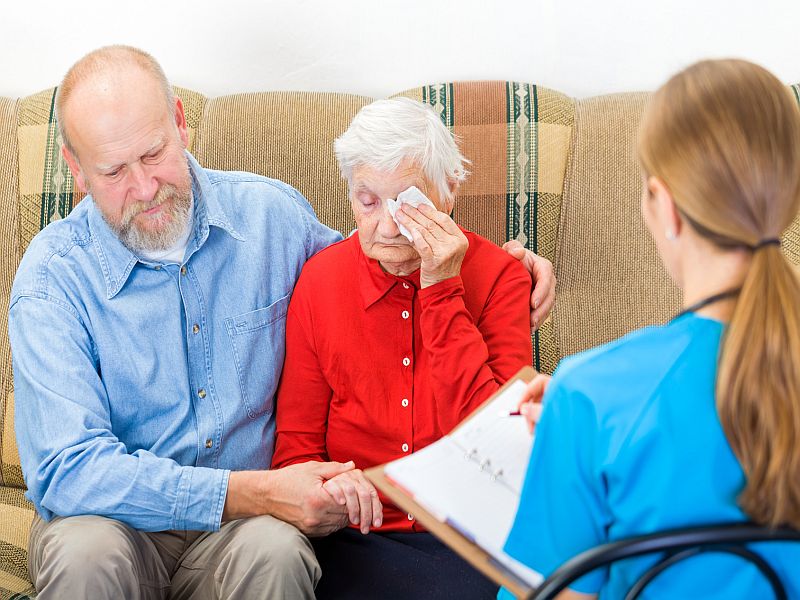
WEDNESDAY, Feb. 20, 2019 (HealthDay News) -- Many primary care doctors feel ill-equipped to discuss cancer treatment options with patients, according to a new study.
Researchers surveyed 517 primary care doctors who had 1,077 female patients diagnosed with early-stage breast cancer.
Doctors were asked if they had discussed surgery, radiation or chemotherapy options with their patients; how comfortable they were doing so; and whether they felt knowledgeable enough to help patients make treatment decisions.
Thirty-four percent of doctors said they had discussed surgery options with patients, 23 percent had discussed radiation and 22 percent had discussed chemo, the study found.
Doctors who said they felt more comfortable discussing cancer treatment were more likely to have such talks with patients.
However, 22 percent of doctors who discussed surgery options with patients said they were uncomfortable doing so, and only 17 percent said they had the necessary knowledge. Findings for radiation and chemotherapy were similar.
"If we are going to promote their involvement, we may need to start doing that earlier, around the time of initial treatment, and ensure PCPs [primary care doctors] have the information they need to effectively participate in the decision-making process," said lead author Lauren Wallner. She's a health services researcher at the University of Michigan's Rogel Cancer Center.
Primary care doctors can play an important role in helping patients weigh cancer treatment decisions, she suggested. Those with a longstanding doctor-patient relationship likely have a good idea of the patient's values and preferences and may be able to help the patient weigh their choices.
"Inundating them with detailed information about all possible cancer treatments is not feasible. But these providers are likely to start becoming even more involved with the more prevalent cancers, such as breast or prostate cancer. They need to have sufficient resources and support to be prepared for these conversations," Wallner said in a university news release.
The study was recently published in the journal Cancer.
More information
The U.S. National Cancer Institute has more on cancer treatments.
Back

The news stories provided in Health News and our Health-E News Newsletter are a service of the nationally syndicated HealthDay® news and information company. Stories refer to national trends and breaking health news, and are not necessarily indicative of or always supported by our facility and providers. This information is provided for informational and educational purposes only, and is not intended to be a substitute for medical advice, diagnosis, or treatment.






